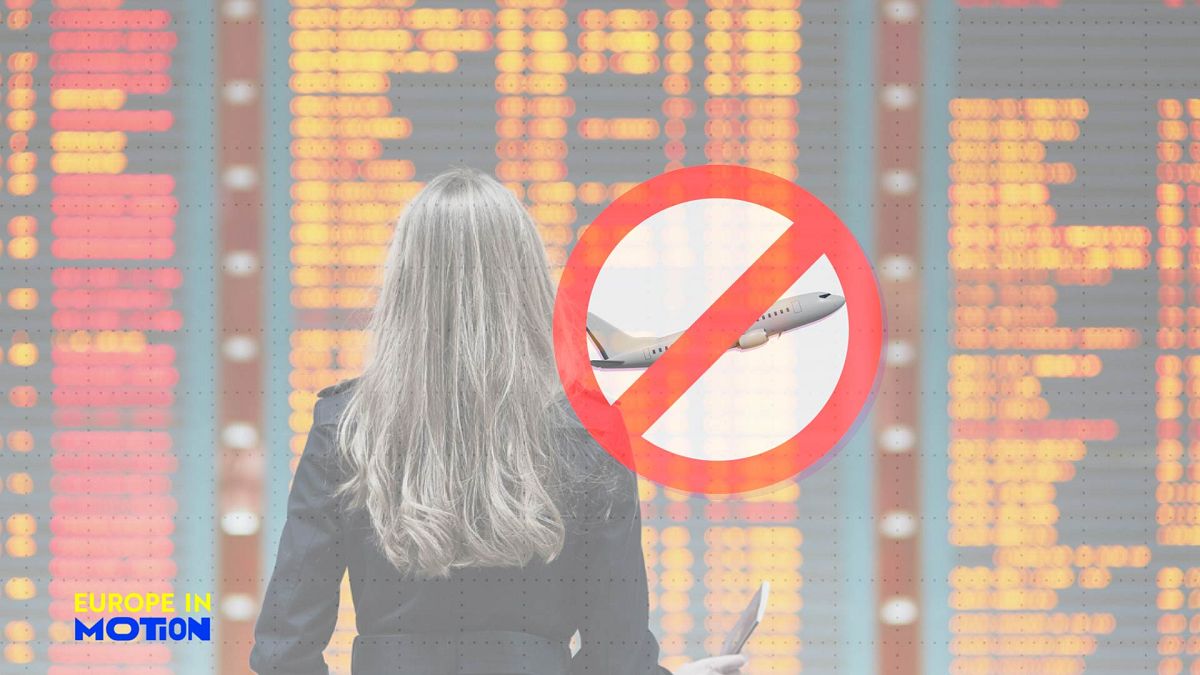It’s been a rough takeoff to 2025 for many European air passengers.
The first five months of the year were marred by tens of thousands of delays and cancellations.
A new analysis of Europe’s 20 busiest airlines ranked their performance, revealing which ones had the most turbulent starts.
Cancellations: Finnair, KLM and BA report worst rates
Dutch carrier KLM scrapped the most flights between January and May (2,760), followed by British Airways (1,763) and Germany’s Lufthansa (1,757), says the report by flight compensation company FlightRight.
Raw numbers aside, the highest rate of flights scrapped was on Finnair: 3.35% out of a total of over 43,000 trips.
KLM is second (2.04%), trailed by British Airways (1.58%), Ireland’s Aer Lingus and Swiss International (1.29%).
Some of the most common reasons for flight cancellations include severe weather, operational issues, like crew shortages or mechanical problems, as well as strikes and runway closures.
The relatively new Italian carrier ITA proved to be one of the most reliable companies, with just a single cancellation in 2025.
Turkish Airlines also excelled, with only three flights called off, followed by LOT Polish Airlines (7) and Spain’s flag carrier, Iberia (12).
Delays: Portugal’s Tap reports worst rate in Europe
Tap Portugal has had the worst record in 2025: a staggering 37% of its flights in the first five months landed at least fifteen minutes late.
Ryanair had the highest number of delayed flights overall: 77,000, followed by EasyJet at over 26,600.
But they operated many more flights than major airlines, so their likelihood of landing late is actually lower.
Fewer cancellations but more delays in 2025
Cancellations in 2025 significantly decreased compared to last year, according to FlightRight data shared with Euronews.
The first five months of 2025 saw 32% fewer service suspensions, bringing the total down to 0.61% of flights affected.
Last year was particularly turbulent strike-wise, marked by industrial action at Lufthansa and multiple air traffic controller strikes in France.
So, is it all good news? Not really. Delays actually increased by 54% in 2025. In general, 16% of all flights from the top 20 European airlines were affected.
Severe weather is largely to blame. January saw major storms, like Éowyn, bringing strong winds and disrupting air traffic, especially in Ireland and the UK, along with heavy snowfall in Germany.
On top of that, a massive power outage hit Spain, Portugal and southwest France in April, leading to several airport closures.
Finally, air traffic volume in Europe grew by approximately 3.7% in early 2025 compared to 2024, according to EuroControl.
“This surge in flights placed additional pressure on air traffic control systems and airport infrastructures, leading to more congestion and delays,” FlightRight commented.
What compensation can you get in case of flight disruption?
Air passengers in the EU are entitled to compensation if there is a delay of at least three hours.
The compensation is based on the flight distance rather than the ticket price: €250 for flights up to 1,500 km, €400 for flights of over 1,500 km within the EU (or 1,500–3,500 km internationally), and €600 for flights of over 3,500 km.
However, exceptions include extraordinary circumstances like air traffic control strikes or weather-related disruptions. No compensation is due in these cases.
Having said that, airlines are still required to help out passengers with alternative solutions like rerouting or hotel accommodations.
At least 75% of passenger claims to be rejected under new plans
FlightRight, as well as BEUC – the European Consumer Organisation – have criticised recent plans by the Polish presidency of the EU Council to change air passenger rights.
FlightRight says the current proposal would be to increase the delay threshold from three to five hours for flights ranging from 1,500 to 3,500 km, and to nine hours for flights over 3,500 km.
The related compensation would be lowered to €300 and €500, instead of the current €250, €400 and €600.
Also, the list of “extraordinary circumstances” might be expanded, including internal strikes and the death of crew members, exempting airlines from any compensation in “avoidable cases,” FlightRight told Euronews.
The company has warned that if the proposal were to pass, “between 75% and 85% of current compensation claims will be rejected.”
When is the proposal expected to pass?
EU sources told Euronews that – after ten years of negotiations, the Council is expected to approve the proposal on 5 June.
If that happens, the European Parliament will update its position on 24 June.

